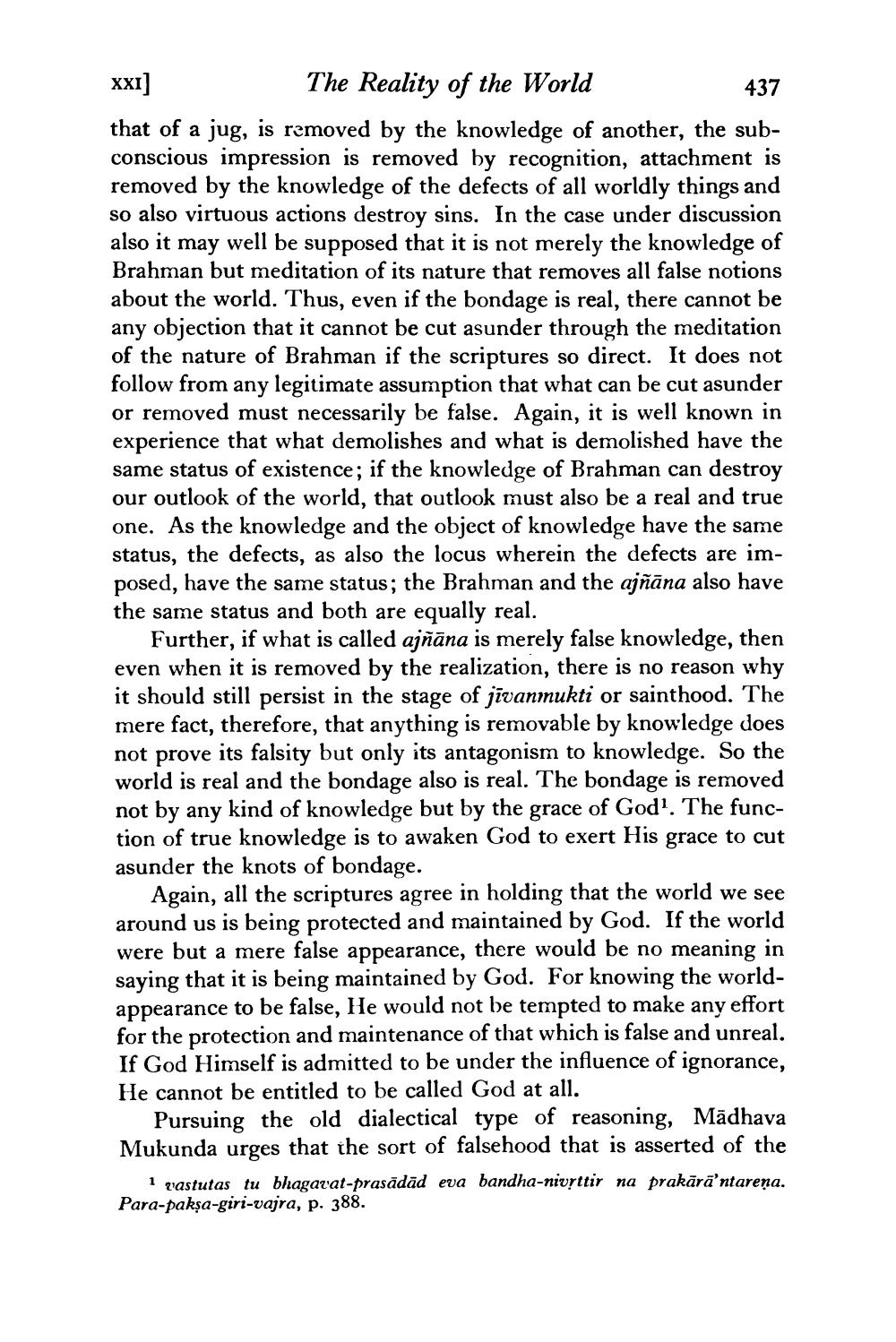________________
XXI]
The Reality of the World
437
that of a jug, is removed by the knowledge of another, the subconscious impression is removed by recognition, attachment is removed by the knowledge of the defects of all worldly things and so also virtuous actions destroy sins. In the case under discussion also it may well be supposed that it is not merely the knowledge of Brahman but meditation of its nature that removes all false notions about the world. Thus, even if the bondage is real, there cannot be any objection that it cannot be cut asunder through the meditation of the nature of Brahman if the scriptures so direct. It does not follow from any legitimate assumption that what can be cut asunder or removed must necessarily be false. Again, it is well known in experience that what demolishes and what is demolished have the same status of existence; if the knowledge of Brahman can destroy our outlook of the world, that outlook must also be a real and true one. As the knowledge and the object of knowledge have the same status, the defects, as also the locus wherein the defects are imposed, have the same status; the Brahman and the ajñāna also have the same status and both are equally real.
Further, if what is called ajñāna is merely false knowledge, then even when it is removed by the realization, there is no reason why it should still persist in the stage of jīvanmukti or sainthood. The mere fact, therefore, that anything is removable by knowledge does not prove its falsity but only its antagonism to knowledge. So the world is real and the bondage also is real. The bondage is removed not by any kind of knowledge but by the grace of God1. The function of true knowledge is to awaken God to exert His grace to cut asunder the knots of bondage.
Again, all the scriptures agree in holding that the world we see around us is being protected and maintained by God. If the world were but a mere false appearance, there would be no meaning in saying that it is being maintained by God. For knowing the worldappearance to be false, He would not be tempted to make effort for the protection and maintenance of that which is false and unreal. If God Himself is admitted to be under the influence of ignorance, He cannot be entitled to be called God at all.
any
Pursuing the old dialectical type of reasoning, Madhava Mukunda urges that the sort of falsehood that is asserted of the
1 vastutas tu bhagavat-prasādād eva bandha-nivṛttir na prakārā'ntarena. Para-paksa-giri-vajra, p. 388.




